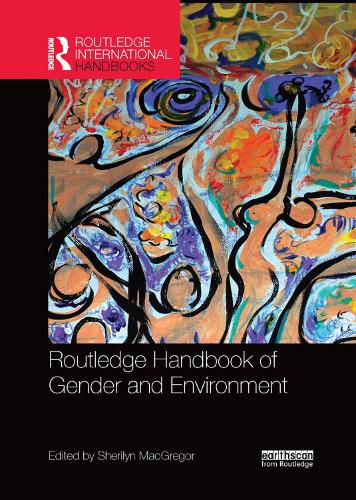Readings Newsletter
Become a Readings Member to make your shopping experience even easier.
Sign in or sign up for free!
You’re not far away from qualifying for FREE standard shipping within Australia
You’ve qualified for FREE standard shipping within Australia
The cart is loading…






The Routledge Handbook of Gender and Environment gathers together state-of-the-art theoretical reflections and empirical research from leading researchers and practitioners working in this transdisciplinary and transnational academic field. Over the course of the book, these contributors provide critical analyses of the gender dimensions of a wide range of timely and challenging topics, from sustainable development and climate change politics, to queer ecology and interspecies ethics in the so-called Anthropocene.
Presenting a comprehensive overview of the development of the field from early political critiques of the male domination of women and nature in the 1980s to the sophisticated intersectional and inclusive analyses of the present, the volume is divided into four parts:
Part I: Foundations
Part II: Approaches
Part III: Politics, policy and practice
Part IV: Futures.
Comprising chapters written by forty contributors with different perspectives and working in a wide range of research contexts around the world, this Handbook will serve as a vital resource for scholars, students, and practitioners in environmental studies, gender studies, human geography, and the environmental humanities and social sciences more broadly.
$9.00 standard shipping within Australia
FREE standard shipping within Australia for orders over $100.00
Express & International shipping calculated at checkout
The Routledge Handbook of Gender and Environment gathers together state-of-the-art theoretical reflections and empirical research from leading researchers and practitioners working in this transdisciplinary and transnational academic field. Over the course of the book, these contributors provide critical analyses of the gender dimensions of a wide range of timely and challenging topics, from sustainable development and climate change politics, to queer ecology and interspecies ethics in the so-called Anthropocene.
Presenting a comprehensive overview of the development of the field from early political critiques of the male domination of women and nature in the 1980s to the sophisticated intersectional and inclusive analyses of the present, the volume is divided into four parts:
Part I: Foundations
Part II: Approaches
Part III: Politics, policy and practice
Part IV: Futures.
Comprising chapters written by forty contributors with different perspectives and working in a wide range of research contexts around the world, this Handbook will serve as a vital resource for scholars, students, and practitioners in environmental studies, gender studies, human geography, and the environmental humanities and social sciences more broadly.